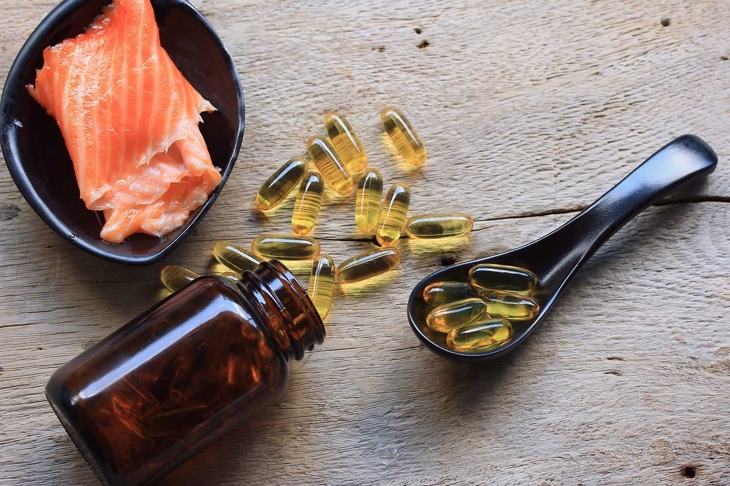
This super-antioxidant plays an important role in our overall health—but particularly in matters of the heart.
You may have heard a lot about coenzyme Q10 (CoQ10) but not know much about its benefits. CoQ10 is a naturally occurring antioxidant produced by the body, which helps convert food into energy.
As we age, our body produces less CoQ10. Levels could also be low if we’re deficient in vitamin B6 or if we’re taking medications like statins (to reduce elevated cholesterol levels).
CoQ10 is perhaps best known as a heart-helping supplement, but researchers are uncovering other potential health benefits.
1. Heart conditions

CoQ10 has a long history of use in protocols for those with heart failure. It may also provide benefit in other cardiovascular concerns, including decreasing the risk of preeclampsia in at-risk women, promoting small reductions in blood pressure in those with high readings, and offsetting potential CoQ10 level reductions caused by statins.
2. Heart failure

Levels of CoQ10 in our body decrease as we age, while heart disease risk increases. Studies measuring CoQ10 levels in those suffering from chronic heart failure have found them to be lower than in those without heart failure.
Research says:
Many studies involving supplementation with CoQ10, prescribed along with other medications for heart failure, have shown improved symptoms and reduced risk of dying from heart problems.
3. High blood pressure

As a risk factor for heart disease, hypertension (or high blood pressure), should be monitored and controlled. Many lifestyle and diet changes can help do this, but other treatments might be needed. One such treatment may be CoQ10 supplementation.
Research says:
CoQ10 has been studied for its effectiveness in controlling blood pressure levels. Although more research is needed to fully understand the mechanism by which CoQ10 appears to lower blood pressure, researchers recommend its use as an adjunct to standard antihypertensive medication.
4. Preeclamsia

A dangerous condition that affects about 5 percent of pregnant women and their babies, preeclampsia can be dangerous to both. It usually occurs in middle to late pregnancy and is characterized by high blood pressure and the presence of protein in the urine.
Research says:
More than 230 pregnant women at risk for preeclampsia were enroled in a randomized, double-blind placebo-controlled study to determine the effect of 200 mg per day of CoQ10 supplementation from 20 weeks of pregnancy to delivery. The results showed those who received the CoQ10 supplements had a 10 percent lower risk of developing preeclampsia than those taking a placebo.
5. Migraines

More than just a headache, migraines can often be incapacitating—sometimes lasting for days—for those who experience them. They often involve a severe, throbbing headache accompanied by sensitivity to light, loss of balance, and/or vomiting. And they also affect women twice as often as men.
Research says:
Supplementing with CoQ10 may help migraine sufferers by increasing mitochondrial function and reducing inflammation. A small Swiss study showed that supplementing with CoQ10 was three times more likely than a placebo to reduce the number of migraines in 42 migraine patients. And 1,550 migraine patients in Cincinnati who had low CoQ10 levels experienced fewer and less severe headaches after treatment with CoQ10.
6. Cancer

According to the US National Cancer Institute, some researchers believe that CoQ10 may be useful in treating cancer because it boosts the immune system. Some lab studies suggest that CoQ10 analogs (drugs that are similar to CoQ10) may prevent the growth of cancer cells directly. And, as an antioxidant, CoQ10 may help prevent cancer from developing.
Research says:
Some preliminary studies have shown promising results in breast cancer patients, but most of the research is at the earliest stages in labs measuring impact of CoQ10 on cancer cell lines.
7. Exercise performance

CoQ10 has long been thought to help improve exercise performance through its powerful antioxidant capabilities. Researchers have shown that increased aerobic metabolism during exercise is a source of oxidative stress affecting muscle function.
Research says:
A small randomized, double-blind, crossover study tested CoQ10 supplementation for otherwise sedentary men following intense exercise. They found that supplementation with CoQ10 partially prevents the increase in lipid peroxidation after intense short-term bouts of exercise. Although this study showed some promise, other studies have been mixed and research is still ongoing.
8. Skin aging

This antioxidant has the ability to enhance the appearance of the skin, decrease the harmful effect of free radical molecules and help skin cells produce energy. CoQ10 has shown its versatility in skin care by not only aiding regeneration of skin cells, but also by evening the skin tone and reducing the color density of age spots.
Research says:
A study of daily coQ10 application to fine eye wrinkles over a six-week period showed a wrinkle reduction of 27 percent. Continued application further improved the elasticity of the skin in the eye area.
9. How to get more CoQ10

Dietary sources of CoQ10 include meat, fish, and whole grains, but the amount of CoQ10 in these sources isn’t enough to significantly increase CoQ10 levels in our body. CoQ10 supplementation is available as capsules, tablets, and by IV.
Since CoQ10 is fat soluble, taking it with a meal containing a healthy fat enables its proper absorption. Oil suspensions and softgel capsules seem to be better absorbed than other forms.
10. Typical dosage

Between 30 and 200 mg of CoQ10 can be taken daily. Consult your health care practitioner, as CoQ10 may interact with blood pressure, blood-thinning, and chemotherapy medications. CoQ10 is generally well-tolerated, and no significant side effects have been reported with either short- or long-term use.




